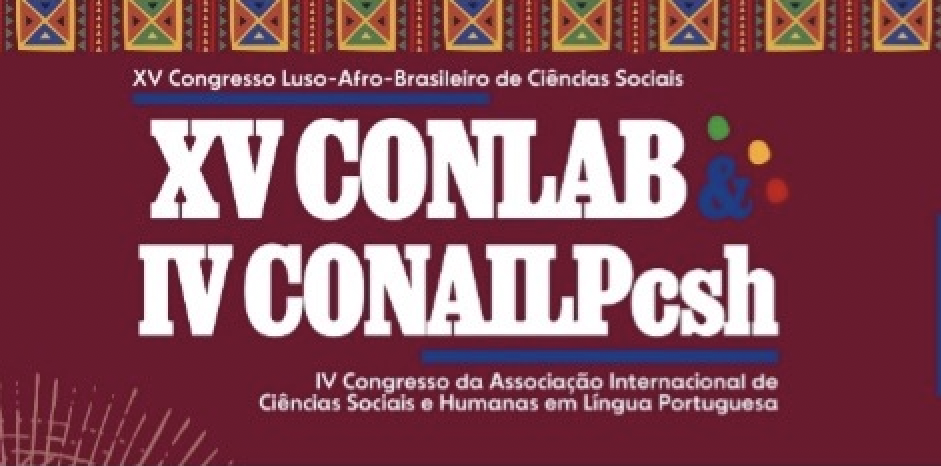News
CONLAB & CONAILPcsh: Call for Papers

XV Luso-Afro-Brazilian Social Sciences Congress (CONLAB) | IV Congress of the International Association of Portuguese-Speaking Social Sciences and Humanities (CONAILPcsh)
University of Cape Verde, Cidade de Praia, Santiago Island, Cape Verde, 26th to 28th September 2023
The International Association for Social Sciences and Humanities in Portuguese Language (AILPcsh) and the University of Cape Verde (Uni-CV), host university are pleased to invite the scientific community and civil society to participate in the XV Luso-Afro-Brazilian Congress of Social Sciences (CONLAB) and the IV Congress of the International Association of Social Sciences and Humanities in Portuguese Language (CONAILPcsh) to be held from 26 to 28 September 2023 at the Uni-CV Campus, in the city of Praia, Santiago Island, Cape Verde, Africa.

The central theme of the XV CONLAB "Reinventing Democracy in a World of Insecurities: challenges for Social Sciences and Humanities" translates a thematic convergence of academic interest and social relevance in the Portuguese-speaking countries, as well as in the world, where neo-conservative waves, wars, and conflicts, among others, constitute threats to democracy. Struggles and resistance have been experienced in several countries in defence of the democratic rule of law.
Call for papers
WG 06. Higher Education, Social Justice and Democracy: Science, Technology(s) and Knowledge Dialogues for Another Possible World
Coordinator
Carlos Cardoso (AILPcsh), Jacqueline Freire (UFPA e AILPcsh), Arlinda Cabral (Universidade Lusófona - CUL), Maria Betânia Arroyo (UNAMA) e João Cláudio Arroyo (UNAMA) invite researchers and teachers to present oral communications, for: Carlos Eugénio Monteiro Cardoso (AILPcsh), Jacqueline Cunha da Serra Freire (UFPA and AILPcsh), Arlinda Manuela dos Santos Cabral (Universidade Lusófona), Maria Betânia de Carvalho Fidalgo Arroyo (UNAMA), João Cláudio Tupinambá Arroyo (UNAMA).
Submission of papers: until July 14, 2023 (2nd call)
Programme: https://www.conlab2023.ailpcsh.org/programacao
Schedule: https://www.conlab2023.ailpcsh.org/cronograma
Submission Guidelines: https://www.conlab2023.ailpcsh.org/conteudo/view?ID_CONTEUDO=810
Work Groups Submission GT 06: https://www.conlab2023.ailpcsh.org/simposio/view?ID_SIMPOSIO=132
Abstract
The economic, political, social and cultural cleavages of the most recent decades, in times of economic liberalization overlapped with political liberalization, have had repercussions on Higher Education, guiding its (re)positioning in front of processes and dynamics of development and contribution to the strengthening of democracy, facing exclusion and social inequalities, which more recently have deepened in the context of the pandemic of COVID 19 that spread the world in 2020 and following years.
Historically asymmetric and unequal, Higher Education in Portuguese-speaking countries, constituted in times that go from the 13th century in Portugal to the 21st century in African countries and East Timor, with colonisation processes that violently exclude the right to access schooling and higher education, has faced structural challenges, especially in the context of the knowledge society, in which education is a factor for competitiveness.
The pandemic of COVID 19 has guided other problems and has demanded solutions in multiple dimensions - academic, technological, technical, management and financing, among others.
The Human and Social Sciences have emerged in the last four decades as vectors capable of contributing to the equation and/or resolution of problems that face the development of countries from the global South, despite fragmentations, barriers and/or isolations imposed mainly by economic or geopolitical interests. Internationally, the role of these fields of knowledge has been recognised, as exemplified by the Declaration of the World Conference on Higher Education (WCHE) of 1998, which highlighted the importance of the humanities for scientific thought, recognising as its mission "... to promote, generate and disseminate knowledge by means of research and, as part of its extension activity to the community, with emphasis on academic studies in the social sciences and humanities, and creative activity in the arts, in the promotion of knowledge through research in science, art and the humanities and the dissemination of its results".
The present Working Group (WG) intends to bring together research/investigations/studies/experiences that have higher education at their core, in confluence with social justice and democracy.
The proposed WG is interested in the debate about science, technology(ies) and dialogues of knowledge in the perspective that another world is possible, in which human rights and dignity, interculturality, diversity, solidarity cooperation, social and environmental justice, are pillars of the good life and academic commitment with social pertinence of higher education:
- Reflections on how the university system has developed in different countries;
- What institutional policies on teaching, research, extension and management have been promoted;
- What investments have been prioritised, restrictions or constraints have been imposed on science, technology and innovation in countries and institutions;
- What agendas have been set;
- What resistance and/or responses to processes of mercantilisation have been produced;
- University autonomy has been (re)configured based on what (dis)tensions;
- The role of the State in (un)regulating the university system;
- The problematisation of epistemologies from the Global South and decolonial epistemologies;
- From which knowledge is (re)produced in Institutions of Higher Education and for which project(s) of development and democracy.
Issues of cultural, gender, racial-ethnic, generational diversity, among others, permeate the daily life of higher education institutions, where confronting and combating all forms of prejudice and discrimination are imperatives of democracy in society and institutions, issues that have become the interest of the WG. The scope of reflection is broad, but with centrality in the theme that gave the WG its title.
The papers to be presented may take the format of oral communication and should be formulated considering a theoretical framework, objectives, methodologies used, diagnosis, results, and conclusions.
